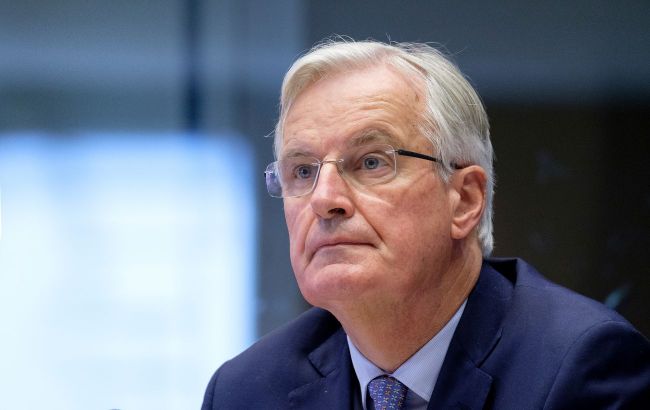French government dismissed: Why and what will happen next
 Photo: Michel Barnier, Prime Minister of France (Getty Images)
Photo: Michel Barnier, Prime Minister of France (Getty Images)
The French Parliament has passed a vote of no confidence in Prime Minister Michel Barnier's government. The ministers have been dismissed, Le Figaro reports.
A total of 331 members of the National Assembly (the lower house of parliament) voted in favor of the vote of no confidence. In total, 289 votes were required for such a decision.
According to the news agency, this is the first time a vote of no confidence has been passed against the government since 1962.
Why the French government was dismissed
Michel Barnier's brief tenure as Prime Minister (he held the position for only three months, the shortest of any French Prime Minister since 1958) was initially shaped by the results of the summer's early parliamentary elections.
As a result, Emmanuel Macron's Together for the Republic party, along with its allies, failed to secure a majority in the National Assembly, the lower house of the French parliament. Pro-presidential forces were only able to capture 211 out of 577 seats.
Since Macron refused to appoint a Prime Minister from the left-wing parties that came in first in the elections, the fate of Barnier's government was completely in the hands of the far-right National Rally of Marine Le Pen. This led to the selection of Barnier, a conservative whose views on several issues align with those of Le Pen.
However, this arrangement lasted less than three months. The sticking point was Barnier's initiatives to reduce the budget deficit, raise taxes, and cut spending. Left-wing forces in parliament, along with the far-right, opposed these measures. Barnier made several concessions, but Le Pen raised new demands, including the implementation of annual pension indexing, which the Prime Minister categorically refused.
His attempt to pass decisions bypassing parliament (a possibility allowed by French law) became the reason for a vote of no confidence in the government, which automatically led to its resignation.
What will happen after the government's resignation
In the French system of government, the president can appoint the head of the government independently, without needing a parliamentary vote. However, the National Assembly can, by a majority vote, dismiss the government.
Without a parliamentary majority, Macron will find it very difficult to find a prime ministerial candidate willing to take on the role under such conditions, with the risk of being dismissed at any moment. Macron spent a long time looking for Barnier as a candidate – almost two months passed between the election and the prime minister's appointment. Therefore, it is most likely that in the near future, Barnier and his ministers will remain in an acting capacity.
A possible solution to the situation could theoretically be another early election, which might lead to a more stable government structure. However, since Macron already dissolved the parliament early this summer, according to the constitution, he will not be able to take this step again until the summer of 2025.
Thus, the far-right of Le Pen could effectively hold the entire executive power in the country hostage – once Macron appoints a new prime minister, the left-wing forces, along with Le Pen's, would immediately dismiss him.
This could potentially be part of Le Pen's strategy, whose main goal is to become president. She might seek to maintain political chaos in the country, pushing Macron to the last possible resort – early resignation (the next French presidential elections are scheduled for 2027). Such calls are already emerging in both the far-right and far-left circles. However, Macron has clearly stated that he intends to complete his term.
Impeaching Macron, which the opposition attempted earlier this fall, is also unrealistic. The impeachment process in France is very complicated and multi-step, but most importantly, it requires two-thirds of the votes from deputies and senators, which the left and far-right do not have.
Nevertheless, the chronic political crisis in France is not the only possible scenario. If opinion polls show Le Pen that artificially creating chaos in the country does not increase her popularity but instead hurts her ratings, she may take a more constructive stance and refrain from dismissing each new government.
Alternatively, Macron might be able to reach an agreement with the left-wing forces and appoint a prime minister who can also rely on them – in this case, Le Pen and her allies would not have enough votes for a vote of no confidence.
In any case, the French state will be able to operate with a temporary budget and continue fulfilling its obligations, including those toward Ukraine. However, if the political crisis in France drags on, President Macron will have to devote more time to domestic issues than foreign policy, including support for Ukraine.
Politico previously noted that the government's resignation in France could make it harder to pass important laws, especially concerning the 2025 budget.



